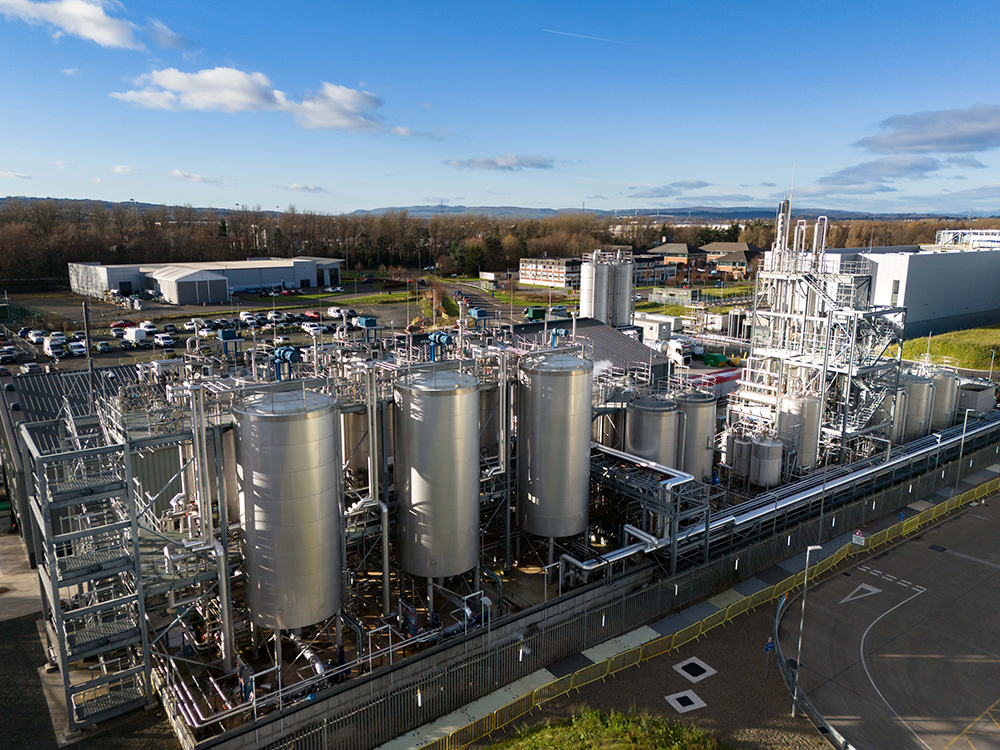Over the past three decades, sustainability in chemicals has gone from being a side note to a fundamental boardroom issue, says Bettina Brierly, Chief Commercial Officer, Celtic Renewables.
In the past, bio-based chemicals were regarded as a curiosity and superfluous to the serious business of supplying global industries at scale.
Profitability, reliability, and volume were the watchwords of the day. The idea of replacing fossil-derived chemicals with bio-based alternatives was dismissed as costly and impractical.
Today, that same conversation is unrecognisable. Far from being sidelined, bio-based chemicals have become a central item on the C-suite agenda. Across pharmaceuticals, cosmetics, personal care, agriculture, and consumer goods, the leaders of multinational firms are all looking for ways to de-fossilise their supply chains with minimal disruption.
Increasingly, the answer lies in bio-based chemicals. Now, it’s simply a case of who will take the plunge and be first to market.
Why the shift? Scope 3 comes knocking
The single biggest driver of this perception shift is emissions accounting – specifically Scope 3, the indirect emissions generated across a company’s supply chain.
Whilst many companies have made great strides in reducing their Scope 1 and 2 emissions thanks to renewable energy and electrification, Scope 3 remains difficult to address. For most firms, Scope 3 emissions account for the majority of their carbon footprint, often upwards of 70 percent. This is where bio-based chemicals can help.
For decades, industry has relied on fossil fuel derived feedstocks as the foundation of everyday products. From solvents in cosmetics to excipients in pharmaceuticals, fossil fuels underpin it all. Substituting these with chemicals derived from renewable feedstocks – residual and rejected potatoes, whisky pot ale and other agricultural by-products – is a practical solution for C-suites to tackle their Scope 3 targets.
These chemicals are almost identical in their properties to their fossil-based counterparts, and customers and supply chains experience minimal disruption while companies reap substantial sustainability benefits.
The perception problem is over
Growing regulatory pressure has meant that in the past three decades, attitudes towards bio-based chemicals have shifted significantly. Previously, they were always too expensive and too niche. Now the barriers that once gave boards pause have been largely overcome.
The sector has spent years refining production techniques and securing stable supply chains from waste biomass so that production of bio-based chemicals is commercially viable. The economics continue to improve, driven by the growth in demand coupled with increasing price volatility around fossil-derived feedstocks.
At the same time, consumer demand for sustainable products has reached a tipping point. Cosmetics brands, for example, face greater scrutiny from customers who want the performance they’re used to from products that are environmentally sustainable. Bio-based chemicals give them both.
Early mover advantage
As the perception of bio-based chemicals changes, firms that remain stubborn and refuse to make the switch will begin to fall behind. C-suites that commit to integrating bio-based chemicals now are both reducing the Scope 3 emissions in their supply chains and also future-proofing their businesses against further regulatory change.
By 2035, when much of the world’s most ambitious climate regulations are scheduled to come into force, those with established partnerships in bio-based chemistry will be ahead of competitors who put off their adaptation plans and must scramble to catch up.
At that point, the cost of inaction will be high, in terms of literal fines, reputational damage and loss of market share. By contrast, early adopters will have supply security, stronger brand equity, and an authentic sustainability narrative that resonates with stakeholders.
Collaboration is key
No matter how fast the industry moves, we need to see cross-sector collaboration if we’re to deliver the carbon savings the world so urgently needs.
Consumers should be prepared to adapt their buying habits – but they may not have to. Sustainable products have very similar properties to their fossil-based counterparts, and switching to the bio-based alternatives should have little impact on their shopping habits.
Of course, in the short term there may be a cost associated with the more sustainable products, but as bio-chemicals become more widespread, this will quickly come down.
Manufacturers should look past profit-driven KPIs and embrace sustainability metrics as measures of success. Switching from fossil-based to bio-based chemicals requires extra investment plus commitment. But it’s a long-term play that will ultimately protect margins and competitiveness.
Governments must step up too by setting binding targets that require a certain percentage of bio-based inputs in manufacturing, similar to the automotive industry’s Zero Emissions Vehicle Mandate. Voluntary adoption will only go so far, and regulatory frameworks are essential to accelerate uptake and level the playing field.
Finally, industry bodies must agree on a scientifically robust, straightforward system for reporting carbon footprint reductions across chemicals. Without a harmonised methodology, comparisons are inconsistent, and progress becomes harder to measure.
If we can get these four forces working in concert, then the chemical industry has a strong chance of breaking its dependence on fossil fuel-based ingredients and achieving its sustainability goals.
It’s a big ask, but if we can determine who wants to capitalise on this collaboration, we can form a group dedicated to the future and cast aside those stuck in the age of fossil fuels.
Looking Ahead
The chemical industry, by virtue of its reach and scale, has both an extraordinary responsibility and a unique opportunity to reduce the carbon footprint of thousands of household products. The most encouraging development is that the boardroom dialogue has finally shifted from “should we?” to “how fast can we?”
C-suites understand that bio-based chemicals are no longer a well-intentioned experimental sideline but are instead a fundamental tool for meeting net zero commitments. In the next decade, those who fully embrace bio-based chemicals will not only meet their Scope 3 targets but also build more resilient, more competitive, and more sustainable businesses.
The changing conversation in the boardroom is a clear step in the right direction, and now is the time to turn words into action. Climate change won’t wait for us to get comfortable.










